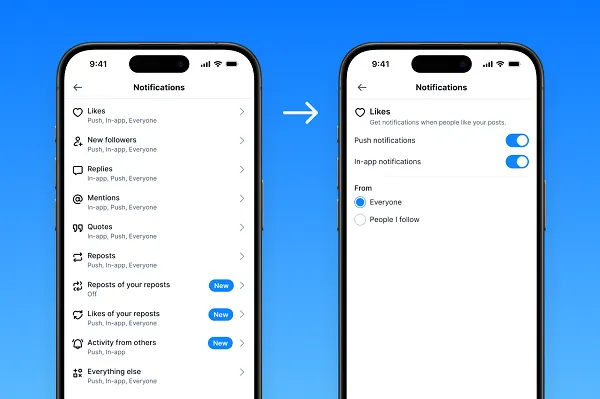The 7 Deadly Sins of Going to Therapy
It’s been a rough few years. In 2020, 20% of Americans either received therapy or medication to threat their mental health, and if you’re thinking it might be time to see a therapist or get your hands on some...


Photo: Massimo Todaro (Shutterstock)
It’s been a rough few years. In 2020, 20% of Americans either received therapy or medication to threat their mental health, and if you’re thinking it might be time to see a therapist or get your hands on some Xanax, you’re not alone. But getting appropriate, productive therapy can be a frustrating process, whether from a lack of suitable providers in your insurance network, the cost (which can be astronomical if you decide to go out of network), or the perceived societal stigma that is attached to mental health treatment. Finding a therapist you feel comfortable with almost seems like the easy part. Almost.
To hopefully make this difficult process a little easier, avoid the 7 things listed below.
2 / 9
Not seeking help in the first place
Not seeking help in the first place

Photo: fizkes (Shutterstock)
According to the American Psychological Association, you should seek a therapist when a problem or problems in your life cause distress, interfere with your daily functioning, and can’t be solved in the usual way you solve problems. But there’s still a stigma attached to the process—nearly half of all Americans view seeking therapy as a sign of weakness—and it can be expensive and time-consuming. But don’t let that stop you. Overcoming your initial reluctance is the most important part of the process. None of the rest of it can happen if you don’t start.
3 / 9
Not doing research on treatment options
Not doing research on treatment options

Photo: StunningArt (Shutterstock)
There are many different approaches to mental health treatment— cognitive behavioral therapy, old school psychoanalysis, group therapy, addiction counseling, psychedelic mushroom trips, etc. The destination is, broadly, the same for all all these approaches: to help you become a happier, better functioning person. But the road to get to there differs widely. So do some research. Start with the American Psychological Association’s page, but don’t stop there. Talk about it with your friends, your regular doctor, and your pastor, if you have one. Learn as much as you can about different approaches to mental health and see which one seems to fit best with your ideals and personality.
4 / 9
Not researching potential therapists
Not researching potential therapists

Photo: wavebreakmedia (Shutterstock)
All therapists are not the same, so don’t just plop down on any old couch. Before you set up your first visit with any therapist or counselor, check their reputation on the internet. Make sure they’re licensed. See if you can find someone through recommendations from a person you trust. Ask your primary care physician. Call the therapist and ask questions. How long have they been practicing? Do they have experience with evidence-based treatment for your specific issue? Find out the cost, and how long the therapy might take.
5 / 9
Not understanding payment options
Not understanding payment options

Photo: Visual3Dfocus (Shutterstock)
Most health insurance in the United States covers at least some of the cost of mental health care, but how much is covered, and what kind of services, varies greatly with your insurance plan. To get specific details on what your plan will and won’t cover, contact your medical insurance provider.
If you don’t have health insurance or your provider doesn’t cover the kind of therapy you want, there are still options. Community health centers and student health centers often provide low-to-no cost mental health services. Non-profits like the Open Psychotherapy Collective provide inexpensive treatment. Individual therapists often have a negotiable price or a sliding scale for uninsured patients; don’t be afraid to ask.
6 / 9
Not following the advice of your therapist
Not following the advice of your therapist

Photo: file404 (Shutterstock)
Finding a competent therapist and figuring out how to pay for their services is the easy part. Actually going through the process of therapy is (usually) the hard bit. It’s generally a collaborative process, and you have to do your part. That means showing up for your appointments, taking the process seriously, doing whatever “work” is asked of you by your therapist between appointments, etc. Resistance is often part of the process, so your counselor/guru/psychiatrist should be ready to help you out, but the sooner you do the work, the sooner you can spend 4:00 to 4:50 on Thursday afternoon being a well-adjusted person instead of talking about your problems in some guy’s shabby office.
7 / 9
Staying with the wrong therapist
Staying with the wrong therapist

Photo: Krakenimages.com (Shutterstock)
Even if you put in the work, you might find that you aren’t making progress or that you’re not getting as much as you want from the process. Talk to your therapist about it. If it’s still not working, or they’re giving other signs of non-compatibility, don’t be afraid to break up with them. Quality of care and personal compatibility differs widely from professional to professional, so remember there are other fish in the mental health sea, and it’s not a poor reflection on you if it doesn’t work out.
8 / 9
Not sticking with it long enough
Not sticking with it long enough

Photo: Roman Samborskyi (Shutterstock)
About 20% of patients leave therapy prematurely, according to the American Psychological Association, especially people in their 20s and clients seeking treatment for personality disorders and eating disorders. Don’t let that be you. No treatment is likely to be as effective if you leave early, so stick it out until it’s finished.

 UsenB
UsenB 































